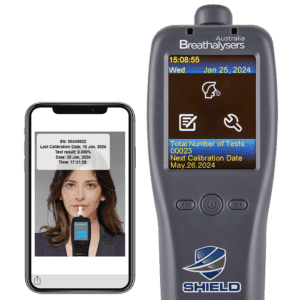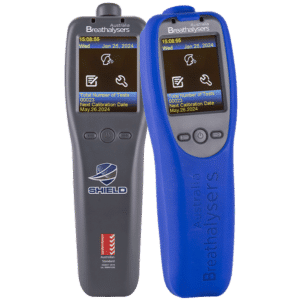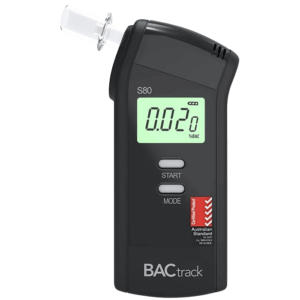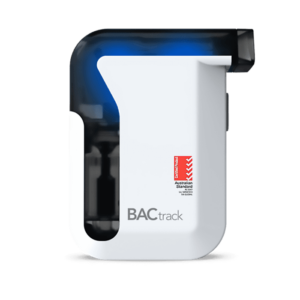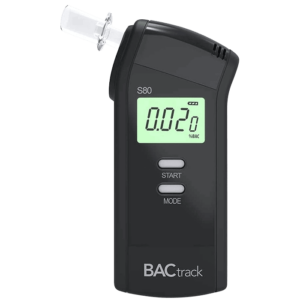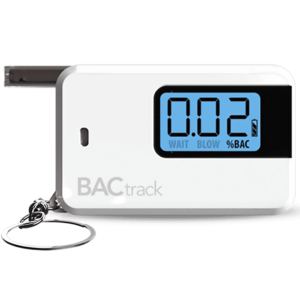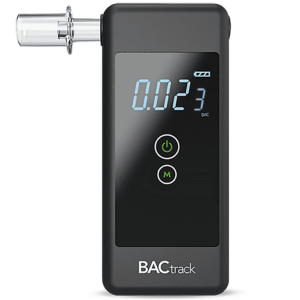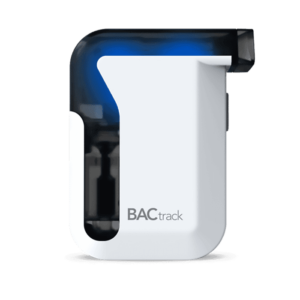Complete Range of
Workplace Breathalysers
- High Volume
- Active & Passive
- Remote or Local Testing
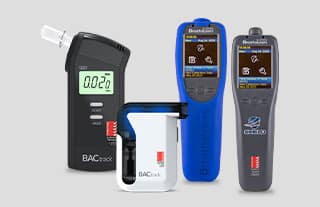
Complete Range of Workplace Breathalysers
- High Volume
- Active & Passive
- Remote or Local Testing
Workplace Breathalysers
Our Workplace Use range is suitable for New Zealand transport, construction, manufacturing, logging, and mining industries.
We are heavily committed to Occupational Health & Safety and work with companies that need to be compliant to keep their staff and visitors safe. We also help these companies stay updated with health & safety legal requirements.
Construction
Transport
Mining
Law Enforcement
Construction
Transport
Mining
Law Enforcement
Probation
Hospital
Workplace Breathalysers in New Zealand
Alcohol testing is a standard practice in many New Zealand workplaces. One of the methods companies typically use to detect alcohol is breath testing. This procedure involves using a breathalyser to analyse the breath samples for ethanol. This process takes minutes to conduct and provides accurate initial screening results to help determine if an employee is fit to work.
READ MORE>>Ensuring workplace safety is a top priority for New Zealand companies. In particular, those in high-risk industries must follow strict protocols to avoid incidents from occurring. Alcohol is known as a leading contributor to workplace accidents. Hence, companies implement alcohol policies to prevent and deter misuse. This article will present reasons for using workplace breathalysers, the industries that use them, and the contributors to the ideal breath tester.

Reasons for Using Workplace Breathalysers
Workplace breathalysers are useful tools for convenient breath alcohol testings. They are accurate devices for detecting ethanol in the breath sample. The device can also trace alcohol use hours after consumption. Moreover, they are easy to use in various situations. As such, they are ideal for onsite, initial screenings for work purposes.
Many companies find in-house testing more convenient than allocating all testing to third parties. Hence, the need for reliable breath testers continues to grow to combat alcohol misuse in the workplace. With trained staff, companies can easily conduct fair alcohol testing using breath testers.
Reasons for Testing
Companies may include several testing reasons in their alcohol use policies. They help prevent alcohol misuse among employees and ensure individuals follow the rules accordingly. Nevertheless, they should be done fairly and with consent. As such, employers commonly introduce testing policies during job postings. This allows them to follow the laws surrounding testing and conveys their stance on occupational safety.
Pre-employment
Pre-employment testing is a crucial part of the hiring process for many companies. It helps ensure that applicants are free from substance abuse, which can severely impact their job performance. Moreover, it can help prevent these types of individuals from introducing tension in the workplace. Overall, employers benefit from fair testing.
Random
Random screening is an effective deterrent against alcohol misuse. It can help employees reduce their alcohol consumption and improve their mindfulness. This can help with their health and ensure their ability to work is not affected by intoxication. Moreover, it can help identify those with substance use issues so they can access resources to help.
Blanket
Blanket testing is a procedural event that typically occurs at set intervals, such as quarterly or annual. This involves testing all relevant employees. It shows the employer’s commitment to upholding their safety procedures. In many companies, employers conduct this testing alongside medical examinations.
Post-accident
Post-accident testing is a vital process when companies investigate workplace incidents. It enables them to determine if alcohol impairment contributed to the mishap. If impairment did play a role, they can enforce the necessary disciplinary actions. Moreover, it allows them to establish additional safeguards and improve overall safety.
Accessibility
The accessibility of workplace breathalysers is one of its advantages compared to other methods. Breath testers are widely available for personal and workplace use. As such, many have become familiar with how to use them. This simplicity enables quick response during accidents, which is not feasible with laboratory testing methods.
Costs and Availability
Employers can purchase breathalysers from various sources, such as physical retailers and online shops, according to their needs. There are several models and brands available that may suit the company’s testing needs at different price points. Furthermore, they can be used for years with proper maintenance. As such, they serve as cost-effective tools for initial testing.
Quality and Reliability
Workplace breathalysers are tools that must meet the relevant standards to ensure their quality. Specifically, they must meet the AS/NZS 3547:2019. Devices that meet the standard are reliable tools that provide accurate results. On the other hand, companies who do not seek these devices can be at risk of inaccurate results.

Industries in New Zealand That Use Workplace Breathalysers
Workplace breathalysers play a significant role in ensuring the safety and well-being of the employees and the company. These devices enable employers to conduct screenings quickly and conveniently in a non-invasive manner. They are widely utilised in various industries, particularly high-risk fields, as a safety protocol.
Furthermore, companies benefit from preventing alcohol misuse as it can help provide several benefits. Examples of these include lower turnover rates, legal compliance, reduced absenteeism, and higher productivity. Many organisations even conduct training and seminars to promote safe alcohol use.
Transportation and Logistics
Transportation and logistics companies require regular alcohol screenings to ensure employee and road safety. These companies typically have to comply with the Ministry of Transport regulations, which are stricter than normal rules. Regular breath testing can help prevent roadside accidents by ensuring sobriety and deterring irresponsible consumption.
Construction
Construction sites are safety-sensitive work environments due to the nature of the occupation. In particular, those operating heavy machinery should be particularly cautious against alcohol impairments. For some companies, they conduct regular testing before entering the work site to avoid accidents from occurring. They also conduct reasonable suspicion testing to identify alcohol misuse.
Manufacturing
Manufacturing is an industry involving heavy machinery regardless of the specific product. It involves teams of staff working in facilities and strict working conditions. As such, the risk of accidents is significantly high. This industry particularly benefits from workplace breathalysers since they can test employees before entering the facility or during accidents or near-misses.
Educational Institutions
Educational institutions can implement testing procedures for staff to ensure campus safety. They may also test consenting students for specific situations, especially to deter and identify underage drinking during social events. There are also courses that provide training for alcohol testing using breathalysers.
Drug and Alcohol Testing
Many drug and alcohol testing facilities also utilise breath tests with breathalysers for initial screening. They are convenient devices, particularly for onsite testing. Some even recommend particular devices to their clients if consulted. They are great initial testing tools that can help reduce the costs of alcohol testing.
Healthcare and Medical Institutions
Healthcare facilities also use workplace breathalysers to maintain a safe working environment. As with most safety-sensitive positions, they ensure workers do not operate machinery while intoxicated. This helps avoid mistakes and conflicts within the clinic or hospital.
Alcohol Recovery Programs
Alcohol recovery programs utilise breathalysers to help improve the lives of those under their programs. They are effective in preventing consumption and ensuring adherence to the sober-living program since these devices can detect alcohol for up to 24 hours in minutes. Many patients with alcohol consumption issues even use personal devices to help them stay in line.
Mining
Mining is a significant industry in New Zealand that also has a high-risk working environment. In mining sites, staff regularly interact with heavy machinery and hazardous substances due to the nature of the work. Hence, it is imperative to conduct the necessary screenings to prevent incidents that may result in injuries and fatalities.
Plumbing and Gas
The plumbing and gas industries are crucial for New Zealand homes. In many companies, they require a medical examination, which includes alcohol and drug testing. Some businesses may also utilise breathalysers to ensure all workers are sober during working hours and trips as a crucial process in maintaining safety.
Security
The security industry is another high-risk area that requires staff to be fit for work. Alcohol impairment is a significant detriment as the nature of their work requires employees to be on high alert and physically able to react to emergencies. This is why conducting screenings can help companies ensure they provide high-quality service.
Law Enforcement
Law enforcement officers use portable breathalysers during random roadside testing to identify individuals who are under the influence while driving. These can be done at random or at set checkpoints to ensure road safety. These officers use government-approved breathalysers with printers that may serve as evidence during legal proceedings.
Warehousing and Storage
The warehousing and storage industries are another example of fields that regularly use heavy machinery for day-to-day operations. The large volume of items can prove a safety hazard if handled incorrectly. Moreover, businesses in this line of work benefit from ensuring their employees are physically and mentally able to perform their jobs correctly, as mistakes can cause severe consequences.
Waste Management
The waste management field is an industry that deals with many hazardous substances. As such, it requires workers to follow strict procedures to avoid incidents that cause harm to themselves and the general public. They generally have a zero-tolerance policy for alcohol use during working hours and conduct regular screening programs.
Horticulture
Horticulture is an industry in the agriculture field that encompasses businesses cultivating growing plants. It is common practice for these businesses to enforce drug and alcohol policies to ensure safe working environments. This is due to the presence of hazardous substances and heavy equipment that require strict safety protocols to handle.
Forestry
The forestry industry is strictly managed to follow a zero-tolerance alcohol policy. Hence, even small-scale businesses are highly encouraged to implement drug and alcohol policies to ensure safety. They must follow the relevant standards when testing, which include using a certified breathalyser for workplace alcohol tests.

What Is the Ideal Workplace Breathalyser?
There are several factors that buyers must consider when looking for the ideal workplace breathalyser. This is due to the wide range available in the market. One of the foremost considerations of many companies is the cost. However, they must also account for what features contribute to the price and if it is essential for their needs.
Otherwise, it may cause them to purchase a breath tester that is insufficient for their testing procedures. In the long run, this may result in additional costs and unsafe working environments. Moreover, it is crucial to differentiate between workplace and personal breath testers to avoid incidents from occurring.
Sensor Accuracy
Sensory accuracy is crucial when looking for a dependable testing device. It is ideal to buy a fuel cell breathalyser to help ensure this. It is a more reliable and accurate sensor compared to the semiconductor type. The sensors only react to ethanol and are less vulnerable to environmental factors. Furthermore, it is similar to what law enforcement officers utilise during roadside tests.
Testing Volume
Testing volume is an essential factor to keep in mind when buying a workplace breathalyser. Small businesses may only need a low-volume device. Meanwhile, bigger facilities may require breath testers that can conduct 500-1000 tests per recalibration. It is crucial to keep the volume in mind and decide if it is more cost-effective to buy multiple devices in the long term.
Available Testing Methods (Passive and Active)
Workplace breathalysers may have two available testing options depending on the product. Most devices only have the active testing mode. This involves the user directly blowing into the mouthpiece of the breathalyser. Meanwhile, the passive mode provides a convenient method of testing several people more efficiently. Hence, it is a function that companies with high-volume testing requirements benefit from.
Recalibration
Recalibration is an essential service for the maintenance of the device. It enables the device to last for years with proper care. Importantly, it ensures the accuracy of the test results. Hence, companies should look for the availability of the calibration service before purchasing a device. Some companies offer plans, while some send out timely reminders to prompt the recalibration.
Power Source
Handheld breathalysers typically use replaceable batteries as the power source. These provide convenience as they can be easily swapped out as needed. However, some devices may have particular requirements with the batteries due to their consumption needs. It is crucial to acknowledge this to prevent issues. Some devices also provide a hybrid option of a rechargeable source with their replaceable batteries.
Reliability
Companies must look for reputable products that follow the AS/NZS 3547 standards to ensure the accuracy of the results. Moreover, it is worth noting that these standards can be updated after a few years, with the latest being in 2019. Businesses may also look at the reviews for the product and the retailer to help them decide if it is a reliable purchase.
Conclusion
Workplace breathalysers are accessible, cost-effective, and reliable tools for conducting alcohol tests in professional settings. They ensure safety by accurately detecting ethanol in the breath samples provided. Moreover, they provide easy-to-understand numerical results during initial screening. As such, many companies use them for pre-employment, random, blanket, and post-accident training. Examples of these industries include transportation, manufacturing, horticulture, and mining.
Third-party testing providers typically use affiliated breath-testing brands. Companies interested in conducting alcohol breath tests in-house may purchase workplace breathalysers from online retailers or physical stores. Buyers must consider factors such as cost, sensor accuracy, testing volume, and testing modes when looking for a breath tester. They should also look into the recalibration options and reliability of the device. Generally, looking for a device that follows the AS/NZS standards is a great place to start.






